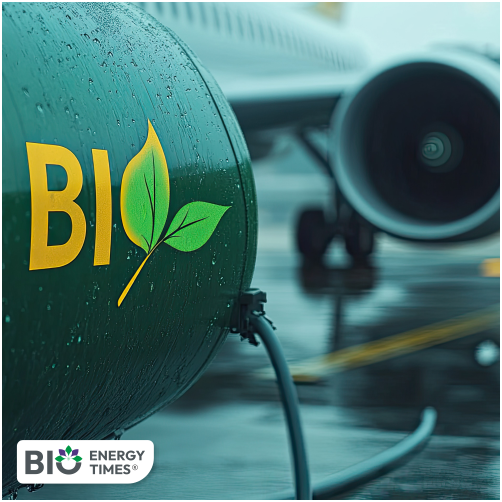New Delhi: India is working on a comprehensive policy to promote both the production and use of sustainable aviation fuel (SAF), Union Civil Aviation Minister K. Ram Mohan Naidu has announced, reports The Hindu businessline.
SAF, which is made from renewable sources or waste, is seen as a key step toward greener aviation.
Naidu said India has a natural advantage in this sector. “Our location gives us the chance to become an exporter, and we also have plenty of raw material available,” he noted.
Currently, India has more than 750 million metric tonnes of biomass and around 230 million metric tonnes of surplus farm residue.
“India has the potential to be a global leader in SAF production,” the Minister said, adding that the country could produce more than its domestic demand and emerge as a major exporter.
He also pointed out that the SAF industry could create 1.1 to 1.4 million jobs across the value chain, reduce India’s crude oil import bill by $5–7 million every year, and raise farmers’ income by 10–15 per cent through the use of crop residue.
Naidu said India’s skilled workforce and strong manufacturing base would make SAF more affordable compared to other regions. But he admitted that pricing remains a challenge.
“Right now, SAF is costlier than normal jet fuel. To make it cheaper, we need to increase production,” he explained.
Industry estimates show that SAF costs two to six times more than conventional jet fuel. Still, Naidu highlighted strong demand within India, driven by the fast-growing aviation sector. The country’s refining capacity also allows it to export half of its aviation turbine fuel production.
SAF is expected to play a key role in meeting India’s future fuel needs. Aviation turbine fuel demand is likely to rise to 15–16 million tonnes by 2030, and nearly double by 2040.
“SAF is an essential part of our strategy to make aviation sustainable. It offers a practical solution to cut emissions right now,” Naidu said.
The upcoming SAF policy will also draw from a feasibility study carried out by the Centre along with the International Civil Aviation Organisation (ICAO).
SAF is an important part of the Carbon Offsetting and Reduction Scheme for International Aviation (CORSIA). India has not joined its voluntary phase (2021–2026), but Indian carriers will need to comply with offset requirements from 2027.
The government plans to start with a one per cent SAF blend in jet fuel in 2027, increase it to two per cent in 2028, and reach five per cent by 2030.
Indian Oil Corporation recently received certification to produce SAF at its Panipat refinery—an important step toward large-scale production, certification, and distribution.
However, industry experts say the lack of supporting infrastructure and ecosystem makes SAF production costly. Large investments are needed to set up facilities, but financing remains limited, especially in the early stages.















